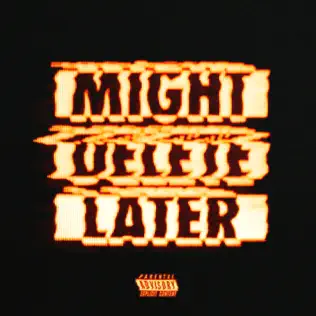What does a high octane performer, who conducts wild, bacchanalian dance parties every night to masses of drugged out youths, have in common with a chubby, Fat Joe look-a-like called Khaled, who spends a lot of time in his office arranging musical collaborations between people?
They’re both technically DJs.
In its current context, the term DJ can mean a number of things. Originally the phrase served as an abbreviation for disc jockey, defined by the proverbial Webster’s Dictionary as “an announcer of a radio show of popular recorded music.” This definition is worthless for reasons outside its grammatical redundancy. The phrase DJ has been used to the point of ambiguity, leaving the thoughtful music fan to ponder, “What exactly is a DJ?”
Some artists have made playful jabs at the designation, exemplified by Girl Talk’s popular contractionless T-shirt mantra, “I am not a DJ,” and up-and-comer Donald Glover making beats under the pseudonym mc DJ and playing off the triteness of the two-lettered hip-hop terms.
Puns aside, the question persists: What delineates a DJ? Outside of the traditional Webster’s definition, the term runs the gamut. The most common definitions of the term come from traditional turntable DJs such as Mix Master Mike, A-Trak, Shadow and others who operate within the synonymous category of turntablist. They generally do shows featuring a variety of mixing tricks off record turntables or some equivalent, spinning and mixing prerecorded samples and songs.
Then there are the DJs that play synthed-up rhythms backed by bass that will literally damage your hearing to a point no audiologist can repair. These include the likes of Armin van Buuren, Paul van Dyke, Sander van Doorn and other guys whose names include lots of vowels and even more Vans. Even their cliche trance-based hooks over simple beats garner them the title of DJ, because their work requires some base level of musical skill and technical mixing ability to conduct, no matter how silly their music sounds.
The last of the most common associations with the DJ label is the ever-popular mixtape DJ who doesn’t do anything on the production or original composition side of the music, instead opting to create a carefully drawn out playlist of beat-matched music. DJ Drama comes to mind here. The mixtape DJ relies on scores of lasers, air horns, explosions and a litany of other explosively annoying samples to amp the crowd up.
While these all make relative sense, the DJ designation becomes increasingly harder to define on two particular fronts: the mash-up artist and the case of DJ Khaled. Mash-up artists pose a problem in that they do fall into some aspects of what DJs do, like cutting and mixing pre-recorded music, but they don’t always label themselves as such. The reverse is also the case. A-Trak, for example, spins traditional turntables, but his mixtapes are mash-up based. Despite the fact that he does not completely conform to the definition of a DJ, he still takes on the DJ label.
Some artists don’t even concern themselves with the semantics of the term.
“I don’t really know what defines a DJ,” said Chris Rose, a UT alumnus and mash-up artist known as DJ Car Stereo (Wars). “I actually only added the word ‘DJ’ in front of ‘Car Stereo (Wars)’ to distinguish myself from a band of the same name from Australia.”
On the other side of things, electrical engineering senior Nick Carneiro of local mash-up group Beat Logic, completely rejects the DJ term.
“Being frequently referred to as a DJ is a frustrating reality of being a mash-up artist,” Carneiro said. “While we have great respect for their art form, it is technically distinct from what we do. The only thing I spin is the platter in my hard drive.”
The most interesting question, though, is where DJ Khaled fits into this giant mess of definitions and functions. At first thought, it appears as though DJ Khaled is a prolific producer with his name on a multitude of hip-hop records. In actuality, DJ Khaled produced only two of the 12 songs on his last record, and one of them was the intro.
Musically, he did nothing else on the record, with the exception of yelling “We the best” and “DJ Khaled” over several tracks so you wouldn’t forget he was there. In Khaled’s defense, he is responsible for arranging an elite team of superstar artists to collaborate on each album. Generally though, people like Khaled are given business titles. Under the Khaled mode of logic, every CEO of a hip-hop label should be referred to as a DJ. This would be fitting, as they mix marketing strategies and crank up profits.
Thanks to Khaled, and other people’s similar desire to get in on a piece of the disc jockey action, the DJ phrase has acquired more definitions than the English language accounts for. In certain instances such as the CEO-DJ scenario, this becomes a problem. Outside of these types, though, it might not be such a huge deal.
“I don’t know if I’m a real DJ,” Rose said. ”I don’t use records. I hate scratching. But I like playing music for people, so maybe that’s all it means.”




















